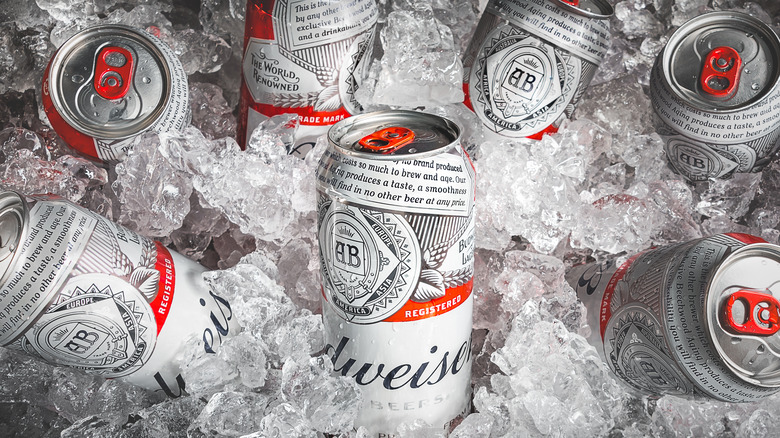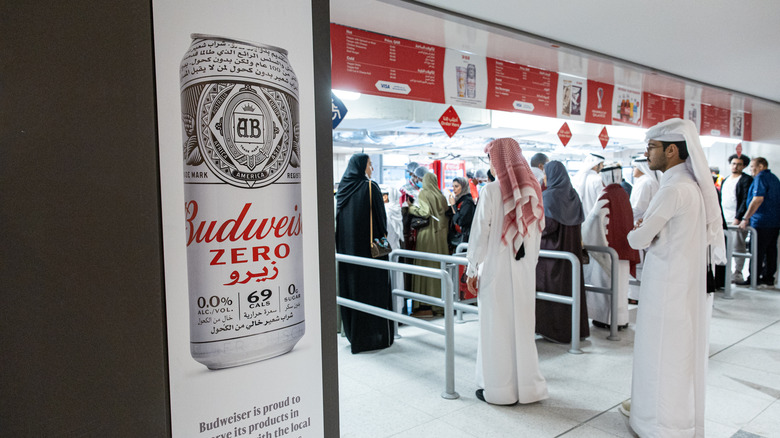Budweiser And FIFA Could Part Ways After World Cup Alcohol Ban Debacle
The Middle Eastern country of Qatar is hosting the 22nd FIFA World Cup, making it the first nation in the region to do so. Referred to as having "the most compact tournament footprint since 1930" by FIFA President Gianni Infantino, the premier event allows spectators to see multiple games in a day (per FIFA). After winning the bid in 2010, the wealthy host nation spent 12 years remapping its infrastructure with new roads, sidewalks, and a subway system. In addition, stadiums and hotels were built.
However, this year's tournament has generated controversies. According to coverage by MarketWatch, the negative stance expressed by Qatar's World Cup ambassador about homosexuality as well as the conflict surrounding migrant workers who built the stadiums without compensation fueled worries and sparked backlash before the latest debacle unfolded. Beer took center stage after Qatar finalized a decision to ban the sale of alcoholic beverages at all eight stadiums.
A statement from FIFA on Friday, November 18, just two days before the first game, said in part, "Following discussions between host country authorities and FIFA, a decision has been made to focus the sale of alcoholic beverages on the FIFA Fan Festival, other fan destinations, and licensed venues, removing sales points of beer from Qatar's FIFA World Cup 2022 stadium perimeters." In response to the news, Budweiser, the official beer of FIFA World Cup Soccer, tweeted, "Well, this is awkward ..." from its official account before deleting it.
Negotiations for the 2026 World Cup
Budweiser has been a tournament sponsor for over three decades to the tune of more than $70 million, per The New York Times. As explained in an email received by Mashed, Chad Wiacek, Head of Sport Analysis at Global Data, said Qatar's alcohol restrictions give the "illusion that FIFA is not in control of its own tournament and risks alienating Budweiser."
While Budweiser will still be able to sell its "Bud Zero" nonalcoholic beer at all stadiums, the dozens of branded, red tents will be missing what the nearly 1 million World Cup fans want to drink, beer. Alcohol sales are allowed outside the stadium, although strictly controlled and steeply priced. Since Friday, Budweiser has been using the W Hotel in Doha to host fans and allow them to consume beer during matches.
According to the New York Times, Sheikh Jassim bin Hamad bin Khalifa al-Thani, the brother of Qatar's ruling emir, is thought to have been behind the ban. It comes as Budweiser is set to negotiate its contract for the 2026 games, giving the company an upper hand against the expected sharp increase in sponsorship fees. "However," Wiacek points out, "Budweiser will be cautious to burn its bridges with the governing body, as the 2026 US tournament will be highly prized. Going elsewhere would open up opportunity for other alcohol brands in its wake." The 2026 FIFA World Cup tournament will be held jointly in the U.S., Mexico, and Canada.

